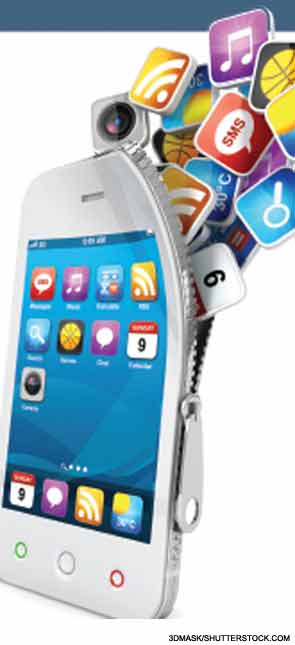

I have come to love Big Data. All it took was a little rubber wristband. Actually, this bangle belongs to my wife. It’s a sleek, powerful device capable of tracking many of her daily activities. Simply connecting it to a smartphone allows her to record her mileage, whether climbing stairs, walking down corridors or trekking through the woods. At night, it analyzes her sleep, using pastel and dark blue shades to highlight the light and deep periods of slumber and a screaming orange to illustrate the times when Linda was just lying awake. The band will chastise her with a hard-to-ignore series of vibrations when she slacks off and compliments her with a thoughtful, data-driven email when she achieves her activity and sleep goals. Although it also tabulates the number of calories Linda purportedly burns throughout the day, I suspect this computation is a guess rather than a realistic estimate. After all, the ability to burn 700 calories while reading a novel sounds far fetched.
A Confluence of Disruptions
Web mobility is a disruptive technology that has profoundly affected our behavior (see Rheuminations, September 2013).1 The first iteration of the World Wide Web was accessed through bulky desktop computers that were connected to the Web via thick cables. The user was kept on a short leash. To a degree, Web 2.0 unchained us. It allowed laptop computers to wirelessly access the Web, but these devices were often too unwieldy to lug everywhere. With Web 3.0, the user was finally unleashed, in part due to the steady downsizing of our mobile devices. Smartphones and tablets weigh just a fraction of most laptops and fit easily into our pockets, purses or satchels.
We truly love our phones and keep them close to our hearts. They have become our lifeline to the world. One recent survey found that 91% of Americans keep their mobile device within reach 24 hours a day.
Coupled to this near limitless mobility are the rapid advancements in cloud computing and data analytics. Big data is the newly coined term used to describe the treasure trove of digital information that we produce and have an increasing ability to store and manipulate. In less than a decade, it has transformed the world of commerce. For example, based on your specific tastes and prior purchases, Amazon and other retailers can target products that you may want to buy, Netflix can offer new movies and shows for you to watch, and Goodreads can recommend novels for you to read.



